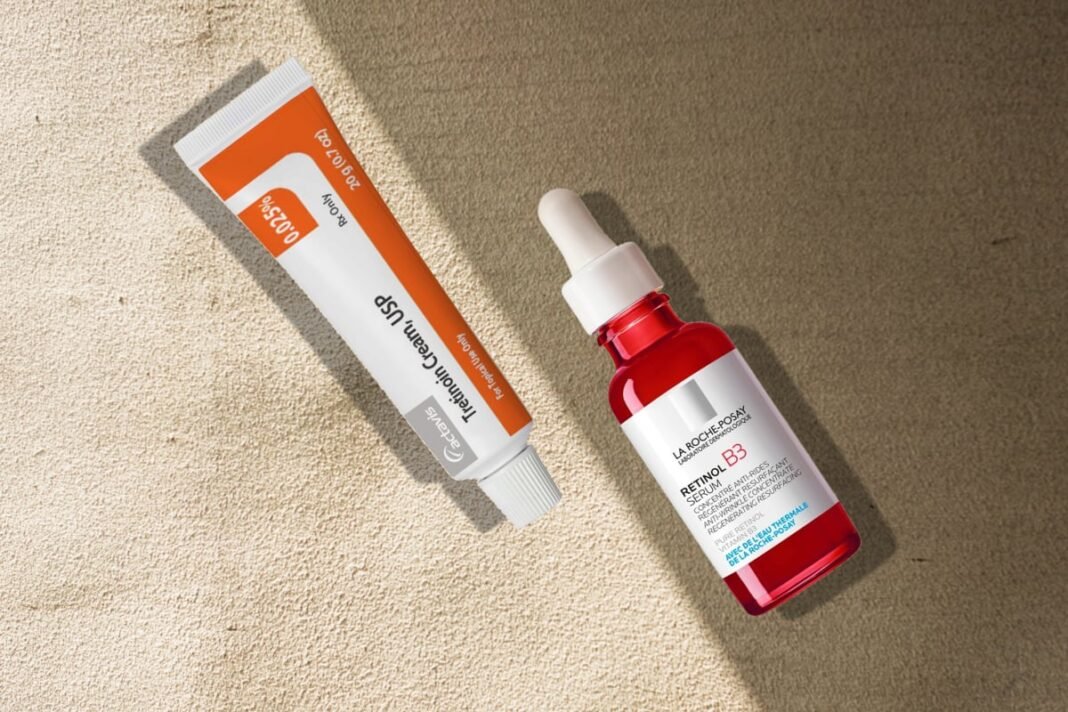Introduction
Have you ever wondered what the difference is between retinol and tretinoin? These two ingredients are often mentioned in the world of skincare, but they can be confusing for those who aren’t familiar with them. In this blog post, we’ll explore the differences between retinol and tretinoin, and how they can benefit your skin.
What Is Retinol?
Retinol, also known as vitamin A, is a fat-soluble vitamin that is essential for good vision, immune function, and cell growth. It is found in many foods, including liver, fish, and eggs. Retinol is also used in skincare products due to its anti-aging properties. When applied to the skin, retinol can help reduce the appearance of fine lines and wrinkles, and improve skin texture and tone.
What Is Tretinoin?
Tretinoin is a prescription-strength form of vitamin A that is used to treat acne and other skin conditions. It is available in topical cream or gel form and is applied directly to the skin. Tretinoin works by unclogging pores and reducing inflammation, which can help prevent breakouts and improve the overall appearance of the skin.
The Differences Between Retinol And Tretinoin
Retinol and tretinoin are both forms of vitamin A, but there are some key differences between them. Here are some of the main differences:
- Strength: Retinol is available over-the-counter in lower strengths, while tretinoin is a prescription-strength medication that is stronger than retinol.
- Application: Retinol can be applied to the entire face, while tretinoin should only be applied to the affected areas of the skin.
- Side effects: Retinol is generally well-tolerated, but some people may experience mild side effects such as dryness, redness, or irritation. Tretinoin can cause more severe side effects, such as peeling, burning, and stinging, especially when first starting treatment.
Conclusion
In conclusion, retinol and tretinoin are both forms of vitamin A that can be beneficial for the skin. Retinol is available over-the-counter in lower strengths and can be applied to the entire face, while tretinoin is a prescription-strength medication that is stronger than retinol and should only be applied to the affected areas of the skin. It’s important to talk to your doctor or dermatologist before using either product to ensure that it’s safe and appropriate for your skin type and condition.

